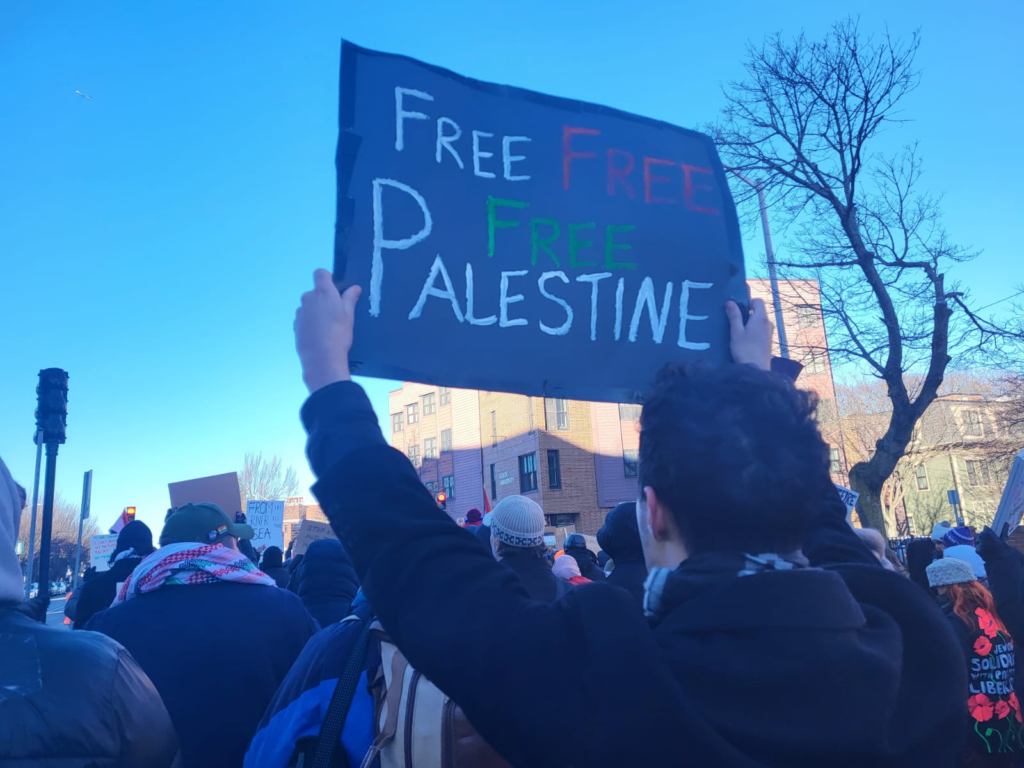Harvard Law School administrators have come under fire for perceived inconsistent application of event planning guidelines.
During the lunch period on February 7, 2024, The Harvard Women’s Law Association (WLA) held Valentine’s Day-themed programming in the lounge at Wasserstein Hall. The lounge is informally known as “Belinda Hall” in honor of Belinda Sutton, a woman enslaved by a family whose estate funded the creation of Harvard Law School.
WLA invited students to craft greeting cards for a local memory care center. In the lead up to the event, the WLA promoted the occasion on Instagram by displaying a flier with various crafts and an invitation to “make some Valentine’s Day cards!!!” The event proceeded without incident and concluded around 1:30 PM.
Last week on February 14, 2024, Harvard Law Justice for Palestine (JfP) hosted a similar lunch time activity in Belinda Hall. JfP is a student organization which advocates for an end to Israeli military occupation of Palestinian territories, a ceasefire in Gaza, and calls for Harvard to disclose and divest from companies that support Israel.
The JfP flier invited students to “write a message of love + solidarity by calling on Harvard to disclose + divest from Israeli apartheid and protect pro-Palestinian activism on campus.” In the preceding days Justice for Palestine also promoted the occasion on Instagram by displaying a flier with various crafts and an invitation to “make some Valentine’s Day cards!!!”
Additionally, both posters (shown together above) used nearly identical fonts for each corresponding part of the poster.
Unlike the WLA gathering, the administration discouraged the JfP rendition before it began, eventually dispersing the participants.
The first disruption came in the form of an email warning around 10:30 AM from the Office of Community, Engagement, Equity, and Belonging (CEEB), warning the organizers that “the lounge is not a reservable space, and events may not be held there.” The recalcitrant organizers sent a reply email arguing that they understood that programming “identical” to that of WLA “would fall within the normal use of Belinda.”
After 12PM, students began gathering in Belinda with cardstock, markers, and a small assortment of snacks in the space. The atmosphere was relaxed, as participants discussed standard student-fare such as classes and Valentine’s Day plans, alongside conversation about the ongoing war in Gaza. Many of the cards directly criticized the CEEB, and the Dean of Students (DOS) for their handling of student activism surrounding the Gaza crisis.
At about 1:15 PM, Dean of Students Stephen Ball, J.D. ‘10, and CEEB Assistant Dean Monica Monroe arrived in Belinda Hall to halt the event. Some attendees, including those involved in the WLA activity a week prior, openly questioned the Deans about what distinguished this event. According to multiple witnesses, the Deans asserted that while both JfP and WLA’s events were unauthorized, they had received complaints about the JfP event in particular. These complaints, according to the deans, mandated their intervention.

Representatives from WLA could not be reached for comment regarding either the incident or their event on February 7.
Irene Ameena, HLS ’25, an organizer with JfP, stated that her fellow organizers assumed “this was at least one activity we are allowed to do in Belinda” based on the administrative response to WLA’s gathering. “We saw WLA hold a nearly identical event a week earlier in the same space and assumed that the same rules that applied to them would apply to us” Ameena continued.
Another 2L organizer accused the administrators of granting opponents of Palestine-affiliated groups a “heckler’s veto” to defeat their expression. They also noted that other organizations with potentially controversial opinions do not face the same degree of scrutiny. “I just think that it’s worth noting that they’re not even hiding the fact that this is obviously an anti-Palestinian thing,” said the organizer.
Various students have argued that this rule regarding shared spaces does not actually exist, and is being selectively applied. While there is no clear policy about communal spaces listed among the various rules pages on Harvard and HLS websites, Dean Ball did issue a statement to all law students on the topic through a November 15 email. In the communication, he defined “personal or small group study and conversation” as “normal activities” for shared spaces on campus.
This is not the first time Belinda Hall has been the site of a confrontation between pro-Palestinian student activists and HLS administrators. In November, an Law Students for Palestine phone banking event was also interrupted and dispersed by deans of the Law School for similar reasons.
A number of students involved in pro-Palestinian activism at Harvard Law School and Harvard University claim to have faced “ad-boarding” or referral to the Harvard Administrative Board for potential disciplinary action, but this has not been confirmed by the school.
This marks yet another chapter of tensions in Cambridge flowing from the ongoing conflict and atrocities in Israel and Gaza, which has killed over 29,000 Palestinians (two-thirds of which are women and children) and around 1,200 Israelis since October 7.


